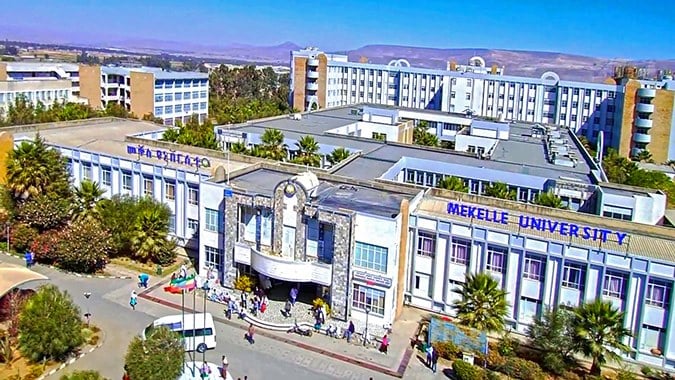
Intentional starvation and complete blockade of medical supply are primary strategies of the Ethiopian government towards the Tigray state in violation of not only moral propriety but also international law. How this unfolded will be told in this writing.
In discussion with displaced and in place faculty of Mekelle University this week I have learned that Ayder Comprehensive Specialized Hospital has more than 60 infants and children dying of starvation in the hospital averaging 2 or more deaths per day. Today there is no medicine, no nutritional supplements, no baby food or bottle formula, no laboratory, no x-ray, and the staff is all working voluntarily without pay. Every day children and adults are dying of simple treatable acute and chronic conditions such as hypertension, diabetes, childbirth, pneumonia, and accident just to name a few. This intentional complete abandonment of the Ethiopian government’s responsibility to care for innocent noncombatants is a violation of international treaties and the Genocide Convention of the United Nations to which Ethiopia is a signatory.
I previously published that we now can accurately estimate that the crude death rate, that is the number of expected deaths per 1000 population per annum will raise from its pre-war level of 6 by %500 to 32 (its level in 1950 when there was almost no health care) meaning over 228,000 people will die in Tigray each year due to complete lack of health care.
For the previous year while the Ethiopian, Eritrean, and Amhara regional governments were planning their invasion of Tigray there was also a plan to defund Mekelle University with reduction and stoppage of many routine payments such as for a routine repair of the MRI scanner and CT scanner.
Then following the Ethiopian Eritrean occupation of Mekelle in late November 2020 the medical supply, maintenance support, and even communication with Ethiopian Ministries of Science and Higher Education and Health were gradually completely cut off to the federally funded Ethiopian Mekelle University and it’s referral and teaching hospital Ayder Comprehensive Specialized Hospital.
The acting President of Mekelle University, Dr. Fetien Abay, and Chief Academic Head of the College of Health Sciences, Dr. Hayelom Kebede, went to see the military commander of the Ethiopian occupying forces in early December when the hospital’s supplies were already near exhaustion at Planet Hotel. He told them that the Ethiopian military and government had no responsibility to care for the civilian population. Subsequent discussions with Mulu Nega, the first appointed governor of the Tigray Interim Administration appointed by Prime Minister Ahmed to preside over the occupation, and then the Eritrean Abraham Belay, long time supporter of Isaias Afwerki, dictator of Eritrea and now the defense minister for Ethiopia who replaced Nega he was too “lenient”. Communications with Belay were that Ethiopia had no responsibility to offer any civilian support or assistance because civilians were not supporting the Ethiopian government.
Since the occupation and extending even up to the recent few months intermittent conversations with Dr. Lia Tadesse by Dr. Hayelom Kebede and others have proven failures. She has expressed regret in telephone conversations that she is not allowed to take any action to supply Ayder Hospital or the Tigray Regional Health Bureau because the Prime Minister has forbid it.
Almost two years ago I was consulting with a group working with multiple international nongovernmental organizations to propose a plan to help improve the function of Ethiopian government purchasing. This included discussions about joint ventures on producing medical consumables in Ethiopia. The plan was rejected after our presentation to the Ethiopian Investment Commission because the funder of a factory wanted to build it in Tigray. Out of this work came a discussion with high officials of the Korea Hospital that they had tried a similar goal before and discovered that Ethiopia was selling some of the supplies it purchased at discounted price or partially subsidized price to other African countries at higher prices to get “hard currency”. It now appears that some supplies that were collected and meant to be shipped to Tigray since the onset of war may have been just given to Eritrea or instead sold as means to collect hard currency.

